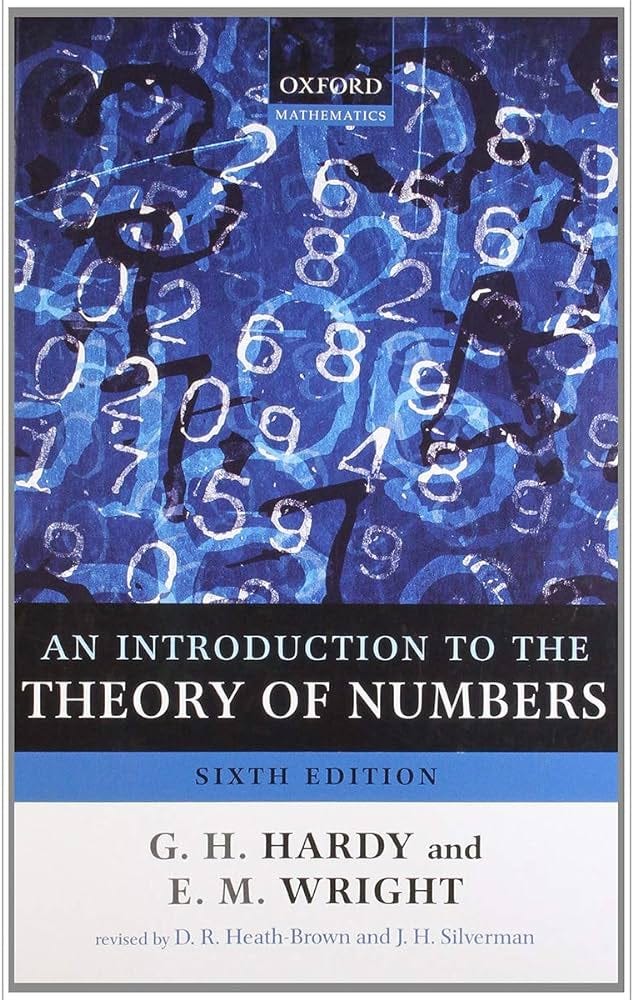5 Brilliant Books To Study (and Understand) The Essence Of Number Theory
“Number theory is the queen of mathematics.”
Number theory, for those of us new this field, is a branch of mathematics that deals with the properties and relationships of integers, such as divisibility, primes, congruences, modular arithmetic, Diophantine equations, cryptography, and more. Concepts from number theory underpin many other areas of mathematics, such as algebra, analysis, and geometry. Number-theoretic ideas, for example, are fundamental in the study of algebraic number fields and elliptic curves.
If we talk about some practical applications then, this discipline is one of the backbone (if not the backbone) of modern cryptography. Techniques like RSA encryption, which secure online transactions and communications, are based on the properties of prime numbers and modular arithmetic. Even some internet security protocols, to say the least, rely on number-theoretic algorithms. Understanding these principles is crucial for developing new methods to protect data and privacy.
The field offers a wealth of problems that are easily understood even by those with basic mathematical knowledge, but whose solutions can be extraordinarily complex and elegant- and that is one of the major reasons why I’ve been so captivated by this number world in the last few years or so. Here are five books that I think are suitable for learning number theory (for beginners to advanced).

Elementary Number Theory by David M. Burton
This is an easy-to-follow book, has lots of illustrative examples, and also comes with a bunch of exercises/practice problems at the end of each section.
It covers the basic topics of number theory, such as the Euclidean algorithm, Fermat’s little theorem, Euler’s theorem, quadratic reciprocity, primitive roots, continued fractions, and more. It also introduces some applications of number theory, such as encryption, coding theory, and computational complexity. It’s fun to go through. Highly recommend if you are just starting.
The second on the list is An Introduction to the Theory of Numbers by G.H. Hardy and E.M. Wright


Written by two eminent mathematicians this book is a classic and comprehensive text on the discipline. It covers a wide range of mathematical topics, such as the distribution of primes, the Riemann zeta function, Dirichlet’s theorem, quadratic forms, partitions, Diophantine approximation, algebraic number theory, and more.
It also contains many historical notes and references (pretty fascinating for those who are interested to the historical aspects of things), as well as challenging problems and exercises.
“Mathematics is the queen of the sciences and number theory is the queen of mathematics.”
— Carl Friedrich Gauss
A Friendly Introduction to Number Theory by Joseph H. Silverman
This book is a gentle and accessible introduction to NT, aimed at undergraduate students and general readers. It explains the main concepts and results of number theory using clear and simple language, without sacrificing rigor or depth. It covers topics such as divisibility, primes, cryptography, Fermat’s last theorem, elliptic curves, and more.
It also includes many examples, applications, and exercises, as well as hints and solutions, like the previous ones.
A Classical Introduction to Modern Number Theory by Kenneth Ireland and Michael Rosen
This book (not so much for beginners) is a modern and elegant treatment of NT, blending classical and abstract approaches. It covers topics such as unique factorization, arithmetic functions, quadratic residues, cyclotomic fields, Gaussian integers, quadratic fields, Dirichlet L-functions, and more. It also introduces some advanced topics, such as modular forms, elliptic curves, and algebraic number theory.
Once you familiarize with the concepts presented in the previous books on the list, you can try it out this one with a slightly deeper into the well of the numbers.
Number Theory by George E. Andrews
Now this one is a perfect blend for both beginners and advanced students. It is concise and self-contained for NT concepts covering topics such as congruences, quadratic reciprocity, sums of squares, Diophantine equations, multiplicative functions, partitions, and more.
It also presents some connections of number theory with other branches of mathematics (which is one of the highlights of the book), such as combinatorics, analysis, and geometry. It contains many exercises, solutions, and hints, as well as a bibliography and an index.
(PS: this article contains affiliate links associated with the books)

Thank you so much for reading. If you liked this story don’t forget to press that clap icon as many times as you want. If you like my work and want to support me then you can Buy me a coffee ☕️. Keep following for more such stories!

